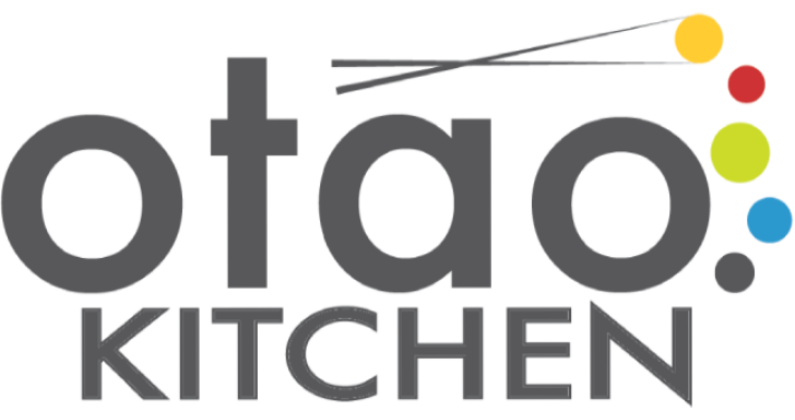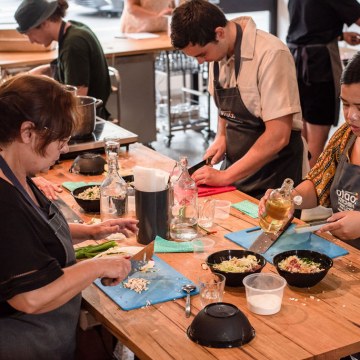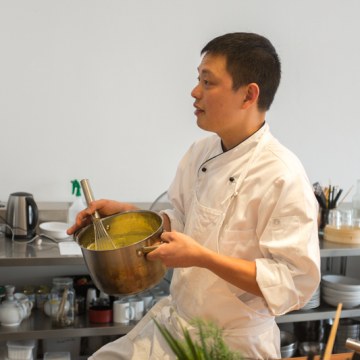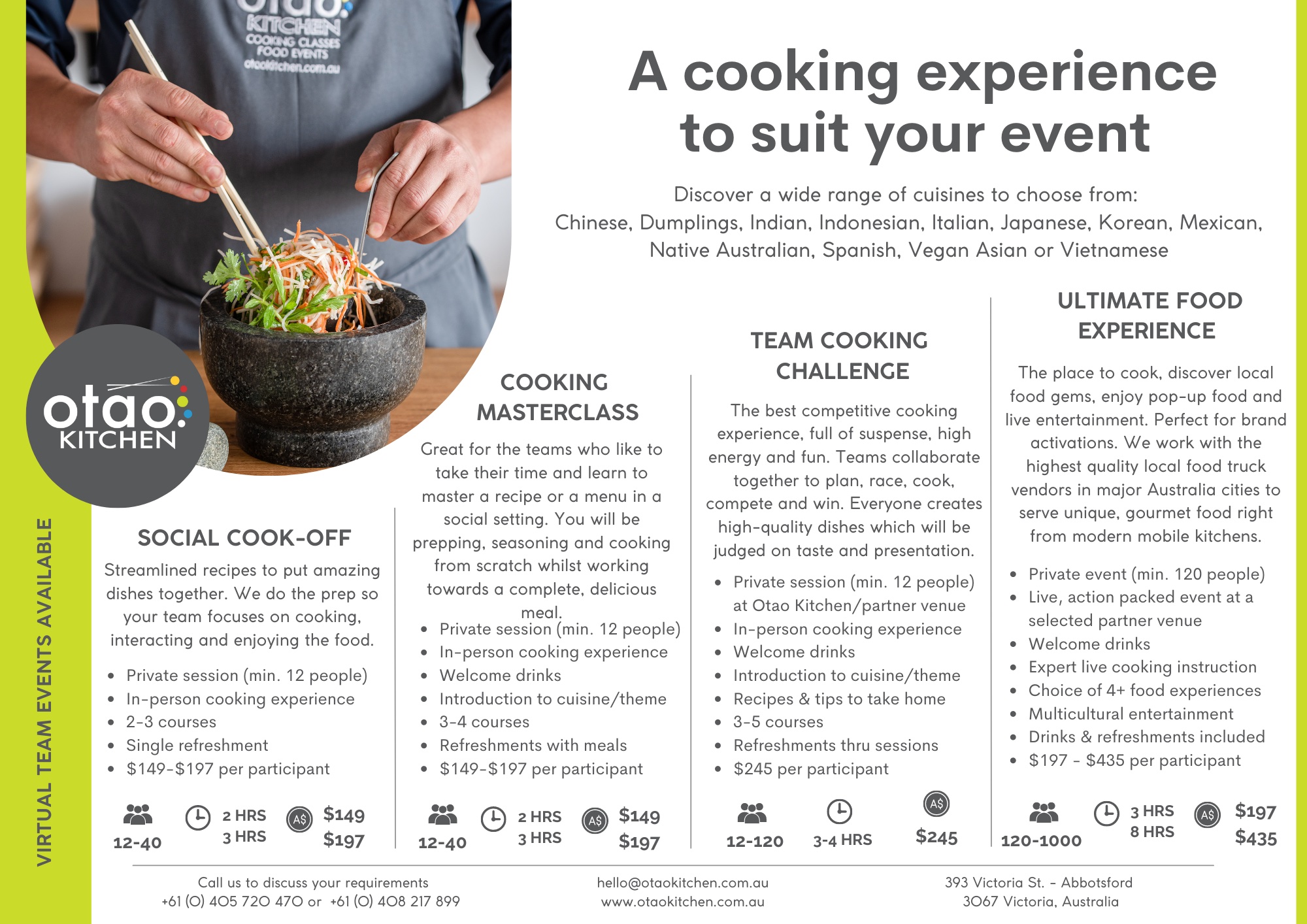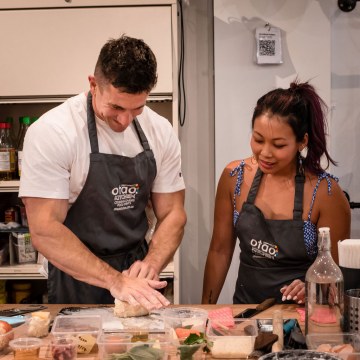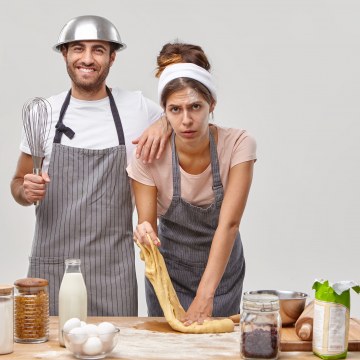These activities build fine motor skills, encourage creativity, and lay the foundation for healthy eating habits. Let’s explore the benefits of cooking activities for preschoolers and some easy ways to get started.
Why Cooking with Preschoolers is Beneficial
Cooking activities for preschoolers offer many benefits that go beyond making a meal. Here are some ways they support your child’s growth and learning:
Builds Fine Motor Skills
In the kitchen, children practice essential motor skills. Pouring, mixing, and kneading help build small muscles in the hands. These cooking activities for preschoolers are fun and improve hand-eye coordination, making tasks like holding a pencil easier.
Encourages Independence and Confidence
Children feel proud when they create something themselves. Even simple cooking tasks give them a sense of accomplishment. By helping with cooking, preschoolers learn to take responsibility and feel capable. Each finished recipe boosts their confidence and makes them excited to help again.
Teaches Basic Math and Science
Cooking involves counting, measuring, and timing—all important math skills. By counting ingredients or watching how a mixture changes, children begin to understand math and science concepts. Simple questions like “How many cups do we need?” introduce them to numbers and counting in a fun way.
Promotes Healthy Eating Habits
Preschoolers are more likely to try new foods if they help make them. When they’re involved in cooking, they become curious about ingredients. This curiosity encourages them to taste and enjoy new, healthy foods. Making their own snacks and meals also helps them understand the importance of good nutrition.
Safety Tips for Cooking with Preschoolers
Safety is key when cooking with young children. Here are some essential tips to keep the cooking environment safe and fun:
Set Up a Safe Workspace
Create a clean, child-friendly area for cooking. Use child-safe tools like plastic knives and soft, non-slip mats. Keep sharp objects and hot items out of reach. Make sure there is enough space for children to move comfortably without risk of falling or bumping into anything.
Provide Clear Instructions
Young children need simple, direct instructions. Use short phrases like, “Pour this here” or “Stir gently.” Explain each step before starting and encourage questions. Being clear helps them understand what they need to do, which keeps these cooking activities for preschoolers safe and focused.
Supervise Closely
Always stay nearby when preschoolers are in the kitchen. Even with child-friendly tools, close supervision is necessary. Keep an eye on their movements, especially when using tools or handling ingredients. Constant supervision ensures that cooking remains a safe, positive experience.
Choose Non-Heat Recipes When Possible
For younger children, avoid recipes that require cooking over heat. Cold recipes or no-bake treats are perfect options for this age. This way, children can safely handle all ingredients without the risk of burns. Cold recipes are fun, easy, and perfect for little hands.
Easy Cooking Activities for Preschoolers
Now that safety is covered, let’s look at some fun and simple cooking activities for preschoolers. These ideas require minimal tools and make great introductory cooking projects.
1. Fruit and Veggie Faces
Let children create funny faces with sliced fruits and vegetables. This activity allows them to choose different shapes and colors to make eyes, noses, and mouths. It’s a wonderful way to learn about different produce while having fun with design. Plus, they get to enjoy a healthy snack at the end of these cooking activities for preschoolers!
2. No-Bake Energy Bites
Mix oats, honey, and dried fruits to make easy, no-bake energy bites. Kids can help pour and mix the ingredients, then roll them into small balls. It’s a simple and mess-free activity that kids enjoy. These energy bites make a tasty snack that they can feel proud of making.
3. Mini Pita Pizzas
Spread sauce and toppings on small pita bread to create mini pizzas. Let children choose their own toppings and make their pizza unique. It’s a creative way to introduce them to different ingredients, from vegetables to cheese. Once assembled, parents can place the pizzas in the oven, adding a special touch to this fun meal.
Educational Cooking Activities
Cooking can be a wonderful educational tool for preschoolers. Here are some ways to turn simple cooking steps into valuable learning moments:
1. Counting and Measuring Ingredients
Counting ingredients is a great way to practice numbers. For example, if you’re making a snack mix, ask your child to count out each item, like raisins or cereal pieces. Measuring ingredients with cups or spoons introduces basic math skills. This counting and measuring practice is a gentle way for children to become familiar with numbers and measurements.
2. Color Sorting with Fruits and Veggies
Use fruits and vegetables of different colors for a sorting activity. Set out a variety of items, like strawberries, blueberries, and carrots, and ask your child to sort them by color. This fun activity teaches color recognition and grouping. It also introduces kids to a variety of fruits and vegetables, sparking curiosity about new foods.
3. Ingredient Scavenger Hunt
Turn cooking preparation into a mini scavenger hunt. Give children a list of ingredients to find around the kitchen, like an apple, a spoon, or a cup. This playful task improves focus, teaches about different ingredients, and makes them feel like an important part of the process. It’s a simple way to keep them engaged while learning.
4. Sensory Exploration with Dough
Playing with dough gives preschoolers a fun way to develop sensory awareness. Let them touch, press, and shape the dough as they please. This hands-on activity engages their senses, improves hand strength, and allows them to explore different textures. Dough activities are especially enjoyable and calming for young kids.
Tips for Making Cooking Fun and Engaging
Cooking time can be even more enjoyable with these fun tips. Simple changes can turn an ordinary cooking session into a memorable experience:
Use Kid-Sized Tools
Investing in child-friendly utensils makes cooking easier and safer. Tools like small spatulas, measuring spoons, and colorful bowls make the experience more exciting. Children feel more confident when they can handle utensils comfortably, making them more eager to participate.
Turn on Music
Adding music to the cooking session makes it feel like a party. Choose playful songs that your child loves. Dancing and singing along creates a joyful atmosphere and helps them stay engaged. Music turns the experience into more than just cooking—it becomes a lively event.
Incorporate Storytelling
Create a story around the recipe you’re making together. For instance, if you’re making a fruit salad, talk about how the fruits came from magical orchards. Storytelling sparks their imagination and adds an element of adventure to cooking. It also keeps them focused and makes the experience more memorable.
Celebrate Their Creations
Make a big deal of their finished work! Let them present their dish to the family or take photos to show off their accomplishment. Celebrating their creations builds pride and encourages them to keep cooking. Positive feedback goes a long way in building their confidence in the kitchen.
How to Plan Cooking Activities for Preschoolers
Preparation is key to a smooth and enjoyable cooking experience with preschoolers. Here’s how to set up for success:
Choose Recipes with Simple Steps
Pick recipes that involve a few easy steps and are quick to finish. Children lose interest easily, so keep it simple. Recipes like smoothies or sandwich making are ideal. Fewer steps help children stay focused and feel accomplished with each completed task.
Prepare Ingredients in Advance
Before starting, pre-measure and organize ingredients to keep things running smoothly. If each ingredient is ready, children can move directly to mixing or arranging, which keeps their attention. Advance prep also minimizes waiting time and helps avoid messes.
Keep Clean-Up in Mind
Choose low-mess recipes, and make cleaning up part of the activity. Give children small tasks like wiping counters or gathering dishes. Teaching simple clean-up skills is helpful for them and makes the experience complete. It also shows them that cleaning is a normal part of cooking.
Plan for Breaks
Preschoolers may need short breaks, especially for longer activities. Allow a quick snack or play break if they start losing interest. Planning a brief pause helps them recharge and refocus, making the experience more enjoyable for everyone.
Conclusion
Cooking activities for preschoolers offer wonderful learning moments and precious bonding time. From counting and sorting ingredients to creating colorful snack plates, these activities help children develop skills and confidence. At Otao Kitchen, we’re passionate about making cooking fun and accessible for all ages, including the youngest chefs. Our family-friendly cooking classes provide a safe, engaging space for children to explore food, try hands-on activities, and develop a love for cooking. Join us at Otao Kitchen to make your next set of cooking activities for preschoolers truly memorable!
